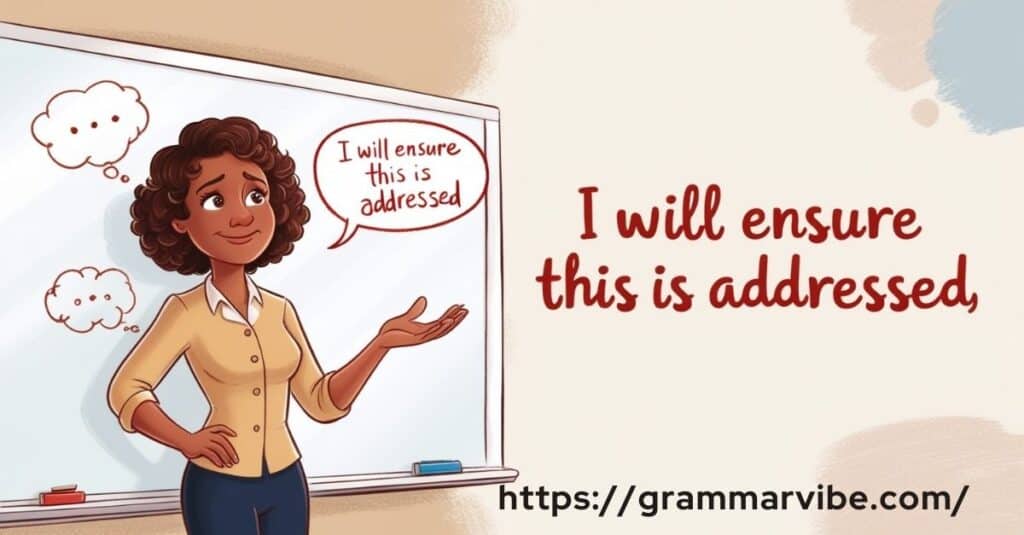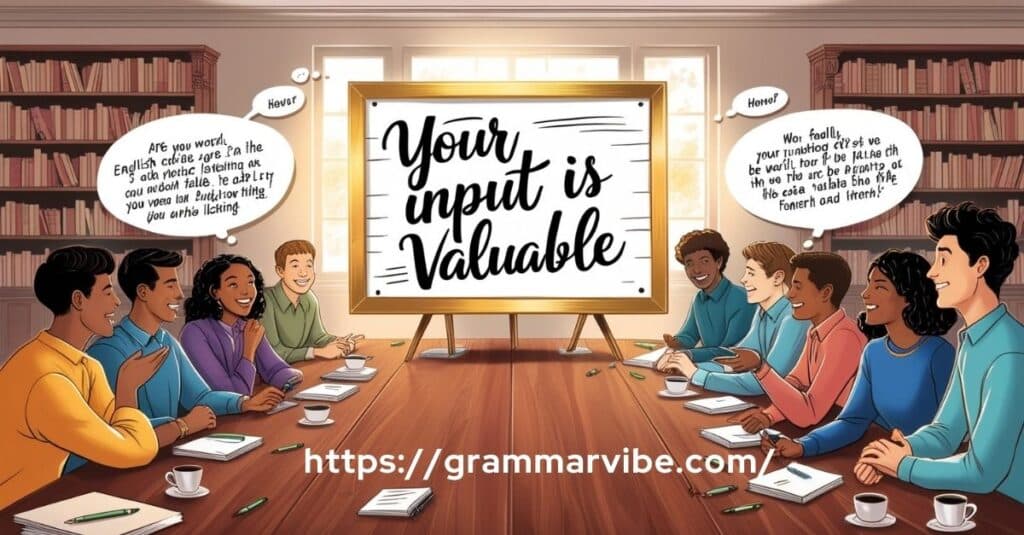In the world of professional communication, emails often serve as the backbone of our interactions. A well-crafted email not only conveys information but also reflects your professionalism and attention to detail. One phrase that frequently pops up in email exchanges is “Well noted.” While it fulfills its purpose, overusing it can lead to a sense of repetitiveness.
We will explore alternative phrases to “Well noted,” each accompanied by contextual examples. These alternatives will help you diversify your communication, foster better relationships, and maintain a professional tone in your correspondence.
Why It’s Important to Diversify Your Language
When we communicate via email, the words we choose can significantly impact how our messages are received. Using varied language is essential for several reasons:
- Clarity: Different phrases can clarify the nature of your response, whether you’re acknowledging receipt, confirming understanding, or expressing agreement.
- Engagement: Varying your language makes your emails more engaging, showing the recipient that you value their input and are invested in the conversation.
- Professionalism: Using diverse expressions reflects a high level of professionalism. It shows that you put thought into your communication rather than relying on canned responses.
- Building Relationships: Thoughtful language helps foster a sense of friendship and collaboration, making colleagues feel appreciated and respected.
Now, let’s dive into those alternatives and see how you can effectively incorporate them into your email communications.
1. Acknowledged
When you use the term “Acknowledged,” you provide a concise and professional response that confirms you’ve received and understood the information shared. This phrase is particularly effective in formal contexts where clarity and brevity are essential.
Usage Example: Subject: Quarterly Sales Report
Hi Sarah,
Acknowledged. Your report highlights some impressive numbers, and I look forward to discussing them in our next meeting.
Best,
John
In this scenario, John acknowledges Sarah’s hard work without elaborating too much, maintaining a straightforward and professional tone.
2. I’ve Taken Note of This
Saying “I’ve taken note of this” indicates a deeper level of engagement. It shows that you’re not just passively receiving information but are actively considering it. This phrase adds a touch of thoughtfulness, which can be beneficial in collaborative environments.
Usage Example: Subject: New Project Proposal
Dear Alice,
I’ve taken note of this. Your innovative ideas for the upcoming project are inspiring, and I’d love to explore them further during our next meeting.
Cheers,
Mark
Here, Mark demonstrates that he values Alice’s ideas and is willing to invest time in discussing them, which enhances team dynamics.
More for you: Synonyms for “Play an Important Role”
3. Thank You for the Update
Using the phrase “Thank you for the update” expresses gratitude and acknowledgment. It shows that you appreciate the other person’s effort in keeping you informed, which fosters a culture of open communication.
Usage Example: Subject: Team Meeting Agenda
Hello Team,
Thank you for the update on the meeting agenda. It looks comprehensive and well-organized. I’m excited to see everyone’s contributions!
Warm regards,
Lisa
In this case, Lisa’s appreciation creates a positive atmosphere and encourages her team to continue sharing information.
4. Got It, Thanks!
For a more casual tone, “Got it, thanks!” works well. This expression is friendly and approachable, making it perfect for informal communications or when acknowledging someone’s input without the need for formality.
Usage Example: Subject: Reminder About the Deadline
Hey Tom,
Got it, thanks! I’ll ensure everything is submitted on time. I really appreciate your reminder!
Best,
Emily
Emily’s response here maintains a friendly vibe, showing that she values Tom’s help while keeping the conversation light.
You might also like: Leader’s or Leaders’ or Leaders
5. I Will Ensure This Is Addressed

Saying “I will ensure this is addressed” indicates that you take the matter seriously and are ready to take action. This phrase reassures the sender that their concerns will not be overlooked and reinforces a sense of responsibility.
Usage Example: Subject: Client Feedback
Dear Rachel,
I will ensure this is addressed. Your insights into the client’s concerns are invaluable, and I appreciate your input!
Sincerely,
David
David’s response shows that he is proactive and attentive, which can strengthen trust and collaboration.
6. Thank You for Bringing This to My Attention
This phrase, “Thank you for bringing this to my attention,” expresses appreciation for someone’s initiative in highlighting important information. It encourages proactive communication and shows that you value their input.
Usage Example: Subject: Potential Compliance Issue
Hi Mike,
Thank you for bringing this to my attention. I’ll look into it right away. Your vigilance is commendable!
Regards,
Karen
Karen’s acknowledgment reinforces a culture of accountability and teamwork, making Mike feel appreciated.
7. I’ve Recorded Your Details
When you use “I’ve recorded your details,” you’re confirming that you’ve taken note of specific information, especially in administrative contexts. This phrase communicates organization and attention to detail.
Usage Example: Subject: Updated Contact Information
Hello James,
I’ve recorded your details. Thank you for updating your information; it helps us keep our records accurate!
Best,
Natalie
Natalie’s response shows that she values accuracy and keeps her communications organized.
Check out this: Other Ways to Say “Firstly, Secondly, Thirdly”
8. I Appreciate the Heads-Up
This casual phrase, “I appreciate the heads-up,” is perfect for acknowledging someone’s alert about potential issues or updates. It conveys gratitude for their foresight and shows that you value their attentiveness.
Usage Example: Subject: Change in Meeting Time
Hi Laura,
I appreciate the heads-up about the meeting change. I’ll adjust my schedule accordingly. Thanks for keeping me in the loop!
Cheers,
Brian
Brian’s response fosters a collaborative spirit, encouraging Laura to continue providing valuable updates.
9. Understood, I’ll Act Accordingly
When you respond with “Understood, I’ll act accordingly,” it shows that you fully grasp the message and are prepared to take necessary actions. This phrase reflects reliability and readiness to follow through.
Usage Example: Subject: Revised Marketing Strategy
Dear Team,
Understood, I’ll act accordingly. Your suggestions for the marketing strategy are spot on, and I’m eager to implement them.
Regards,
Sophia
Sophia’s response indicates that she is engaged and ready to take action, which enhances her leadership qualities.
10. Received and Will Proceed as Necessary
Finally, using “Received and will proceed as necessary” confirms that you’ve received the information and are ready to take the next steps. This phrase conveys control and a proactive approach.
Usage Example: Subject: Final Approval Needed
Hi Andrew,
Received and will proceed as necessary. Your analysis is thorough, and I appreciate your efforts in getting this to me.
Best,
Chris
Chris’s response indicates that he is organized and attentive, ensuring that he remains on top of the situation.
11. I’ve Noted Your Concerns
This phrase, “I’ve noted your concerns,” is a respectful way to acknowledge feedback. It conveys that you understand the sender’s issues and are considering them seriously.
Usage Example: Subject: Employee Satisfaction Survey
Dear Laura,
I’ve noted your concerns regarding the survey results. Your input is vital, and I will ensure these points are discussed in our next meeting.
Best regards,
Michael
Michael’s response shows he values Laura’s input and is committed to addressing her concerns.
For your interest: Other Ways to Say “Please Disregard My Previous Email”
12. I Will Take This Into Consideration
Saying “I will take this into consideration” indicates that you’re open to feedback and willing to reflect on it before making a decision. This phrase fosters a collaborative environment.
Usage Example: Subject: Suggestions for Process Improvement
Hi Team,
Thank you for your suggestions. I will take this into consideration as we move forward with the project. Your insights are always appreciated!
Warmly,
Jessica
Jessica’s acknowledgment demonstrates her commitment to teamwork and values everyone’s input.
13. Your Input is Valuable

Using the phrase “Your input is valuable” highlights the importance of the other person’s contributions. It encourages continued communication and collaboration.
Usage Example: Subject: New Policy Discussion
Dear Sam,
Your input is valuable, and I appreciate your perspective on the new policy. I look forward to discussing this further in our next meeting.
Best,
Rachel
Rachel’s response reinforces Sam’s role in the discussion and promotes open dialogue.
14. This is Helpful Information
By saying “This is helpful information,” you
express gratitude for the details shared. It shows that you recognize the significance of their input in guiding decisions.
Usage Example: Subject: Market Research Findings
Hi Julie,
This is helpful information regarding the market trends. I’ll ensure our strategy aligns accordingly. Thank you for your thorough analysis!
Cheers,
David
David’s acknowledgment enhances Julie’s confidence and encourages her to continue contributing valuable insights.
15. Let’s Keep This on Our Radar
This phrase conveys ongoing attention to an issue or topic. It shows that you acknowledge the information and are committed to following up as necessary.
Usage Example: Subject: Project Timeline Adjustments
Hello Team,
Let’s keep this on our radar as we finalize the project timeline. I appreciate everyone’s input in making this a success!
Best,
Emily
Emily’s response fosters a collaborative atmosphere, ensuring that everyone stays informed and involved.
Table of Alternatives to “Well Noted”
| Alternative Phrase | Context of Use |
|---|---|
| Acknowledged | Formal acknowledgment |
| I’ve taken note of this | Recognizing careful consideration |
| Thank you for the update | Grateful response |
| Got it, thanks! | Informal acknowledgment |
| I will ensure this is addressed | Proactive confirmation |
| Thank you for bringing this to my attention | Expressing gratitude for initiative |
| I’ve recorded your details | Confirming factual receipt |
| I appreciate the heads-up | Acknowledging alerts |
| Understood, I’ll act accordingly | Ready to take action |
| Received and will proceed as necessary | Confirming receipt and next steps |
| I’ve noted your concerns | Acknowledging feedback |
| I will take this into consideration | Showing thoughtful consideration |
| Your input is valuable | Valuing someone’s contributions |
| This is helpful information | Appreciating the usefulness of details |
| Let’s keep this on our radar | Indicating ongoing attention to the issue |
Conclusion
Diverse expressions in email communication not only enhance clarity but also reflect your professionalism and engagement with colleagues. By integrating these alternatives into your correspondence, you can foster better relationships and create a more collaborative environment. Each phrase serves its unique purpose, whether it’s showing gratitude, confirming understanding, or indicating readiness to act.
Next time you’re tempted to type “Well noted,” think about the impact that a small change in wording can have. Choose one of these alternatives to enrich your emails and create a positive tone that encourages open dialogue and collaboration. Whether you’re acknowledging updates or confirming action, using varied language can lead to a more engaged and productive workplace.

Kyren Paul is an experienced blogger and the creative mind behind “Grammar Vibe.” With a passion for the nuances of English grammar, he brings clarity and insight to everyday language topics, making grammar accessible and engaging for readers of all levels.











Leave a Comment